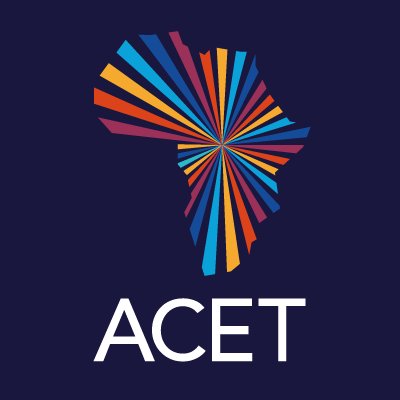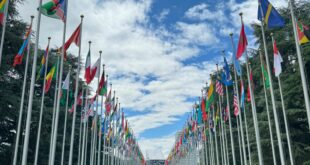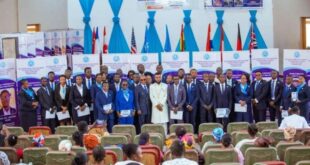Climate and policy experts gathered to discuss the outcomes of COP26 for Africa amidst increasing climate change risk.
The distinguished panel discussed the road ahead in addressing climate challenges, particularly on matters of finance, resilience, accountability, and the visibility of the African narrative.
The event stressed the idea that climate adaptation needs to positively affect the lives of those most directly impacted by the climate crisis, especially rural women.
18 NOVEMBER 2021, ACCRA, GHANA: The African Center for Economic Transformation (ACET) held a joint event in collaboration with the African Union Development Agency-NEPAD, to discuss the critical need to jointly address the continent’s most pressing climate adaptation and mitigation challenges, following the conclusion of the 2021 UN Climate Change Conference (COP26) last week.
Moderated by independent impact and development consultant, Dolika Banda, the virtual event convened a panel of key stakeholders including climate and policy experts and youth representatives who shared their perspectives on resilience, responsibility, accountability, and the gendered impacts of climate challenges and solutions. The panel welcomed members of AUDA-NEPAD, the World Bank, African Risk Capacity, Africa No Filter and Injaro Investments to reflect on the outcomes and expectations for progress on key climate issues in the wake of COP26.
Following the global call to hold developed countries accountable for their failure to deliver on the $100bn annual commitment in climate financing for developing countries, COP26 was an opportunity for African voices to be heard in the global climate conversation. Panellists discussed the outcome of COP26, Africa’s position in the global climate conversation and the challenges with financing climate adaptation in a post-COVID-19 economic recovery era.
Dr Nicholas Westcott, Director of the Royal African Society and ACET Board member, said in his opening remarks: “Climate respects no borders, and that is part of the core message at COP. It is equally critical in terms of economic policy-making to manage that change and its impact, not just on the physical environment but on the human environment as well. It is people responding to the fact that climate is changing that we have to take into account in the policies that we develop. That makes regional cooperation and regional integration – central topics of the third African Transformation Report – absolutely crucial.”
Dr Ibrahim Assane Mayaki, the CEO of AUDA-NEPAD added: “COP26 was considered the most consequential COP since Paris 2015 but the outcomes have been a mixed bag for Africa, with some promising decisions in the Glasgow Climate Pact. The topic of adaptation featuring very strongly at the summit and given the needed attention is a win for Africa. The current state of climate adaptation financing is inadequate, and we hope to witness an increase in the coming years. We should, however, remain cautiously optimistic of such expectations as the promise of making available funding up to $100 billion by 2020 has not been met. This should also be a clarion call for African countries to build capacity to independently verify climate funding on the continent.”
The event took place following the July release of ACET’s third African Transformation Report (ATR) Integrating to Transform. The ATR champions an economically transformed Africa that harnesses regional opportunities through heightened integration, increased collaboration, and visionary leadership. The report urges African countries to work together beyond trade to accelerate transformation, including a crucial focus on managing climate risks by focusing on three recommendations: scaling up renewable energy, promoting climate-smart agriculture, and sustaining green and blue ecosystems.
Access the full report, Integrating to Transform, here and engage with ACET on Twitter, Facebook, and LinkedIn.
The African Center for Economic Transformation (ACET) is a pan-African economic policy institute that supports governments and businesses to transform economies and deliver sustainable growth that improves livelihoods. ACET follows a unique approach that combines analysis, advice, and advocacy in critical program areas, encompassing economic management and governance, youth employment and skills, regional integration and gender equality, to foster collaboration among policy makers and the private sector as they look to accelerate Africa’s sustainable growth. To learn more, visit: www.acetforafrica.org
 Home Of Ghana News Ghana News, Entertainment And More
Home Of Ghana News Ghana News, Entertainment And More





